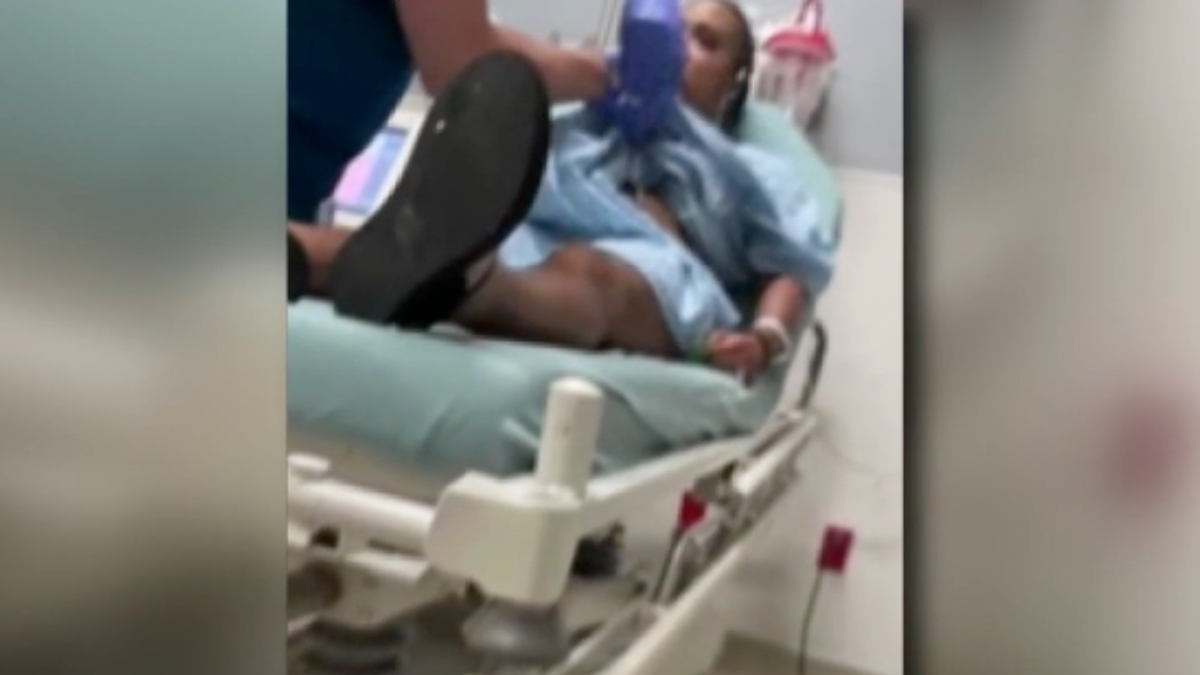Fox News Flash top headlines for August 20
Fox News Flash top headlines are here. Check out what's clicking on Foxnews.com.
A woman in Houston says she was sent to the hospital after touching a napkin on her car door that was apparently poisoned.
Erin Mims was at a Houston restaurant celebrating her birthday on Tuesday afternoon with her husband, but when the couple went back to get in their car, a napkin was on the door, according to FOX 26.
Mims said that she threw the napkin away and didn't think much of it.
"I just threw it out," said Mims. "I opened the door with the tips of my fingers. I asked my husband, did you put a napkin in the door? And he said no."
TEXAS POLICE FIND TIGER CUB AT RAPPER TRAPBOY FREDDY'S HOME WHILE SERVING WARRANT

Erin Mims was at a Houston restaurant celebrating her birthday on Tuesday afternoon with her husband, but when the couple went back to get in their car, a napkin was on the door, according to FOX 26. (FOX 26)
The woman went back into the restaurant and washed her hands before getting back into her car, but said that her fingers began to suddenly tingle, and then the symptoms became progressively worse.
"Maybe five minutes, my whole arm started tingling and feeling numb. I couldn't breathe," says Mims. "I started getting hot flashes, my chest was hurting, my heart was beating really fast."
When she arrived at the hospital, doctors ran urine samples, blood tests, as well as a CAT scan, and said that her vitals were all over the place.
"The doctor came in, and told me it wasn't enough in my system to determine what it was, but said it was acute poisoning from an unknown substance," Mims said.
WOMAN IN OKLAHOMA CLIMBS THROUGH SUNROOF, RESCUES 2-YEAR-OLDS LEFT IN HOT CAR AT WALMART

When she arrived at the hospital, doctors ran urine samples, blood tests, as well as a CAT scan, and said that her vitals were all over the place. (FOX 26)
The doctor said that the incident sounded like a failed kidnapping attempt.
The Houston Police Department said this is the first case of its kind that the department has seen after the woman filed a police report.
Mark Winter, managing director of the Southeast Houston Poison Center, said that Mims' symptoms as described match with hundreds of poisons.
CLICK HERE TO GET THE FOX NEWS APP

Mims said that this is a reenactment of what the napkin looked like on the door handle. (FOX 26)
"The probability is that you would have to have a lot more than just a casual exposure," Winter said. "In her video, her symptoms match hundreds of different poisons. It is possible. I've learned over my 40 years, that anything is possible when it comes to the human body."










































